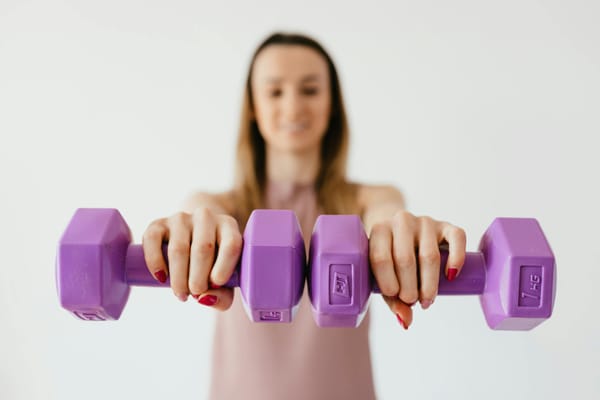Calorie Tracking Apps: Why Hackers Are Hungry for Your Data

They say you can’t change what you don’t measure. That’s one reason calorie tracking apps have taken off in recent years, as more people try to eat cleaner and understand what’s really on their plates. Take MyFitnessPal as an example. The app had about 50 million registered users in 2015 and grew to more than 220 million by 2024.
According to Business of Apps, more than 320 million people used health apps in 2024, and calorie trackers are among those downloaded.
Apps like MyFitnessPal, Lose It!, Lifesum, and Cronometer make nutrition simple by letting you log meals, track exercise, and sync with wearables. They give you an objective picture of how much you eat and burn, eliminating the guesswork. For millions of users, these apps provide structure and motivation, a way to stay accountable and notice progress that might otherwise feel invisible.
Why think about your privacy, too? Because health data is not just another line in a spreadsheet, “anonymized” health data can often be re-identified with surprising accuracy, meaning what you log about your meals and workouts could, in the wrong hands, still be traced back to you.
Top Health Apps and the Data They Collect
When you first sign up, calorie tracking apps usually ask for basics like your age, height, weight, and activity level. But the real data collection happens once you begin using them daily. Each meal, snack, or drink you log adds to the picture, along with your exercise routines, step counts, sleep, and water intake.
Here are some of the most popular calorie and health apps people turn to today, each with its own approach.
- MyFitnessPal – One of the most popular trackers, offering a huge food database and workout logging. Collects detailed meal logs, weight, exercise data, and can sync with wearables.
- BetterMe – Focuses on small, sustainable lifestyle changes rather than extreme diets. Collects food intake, weight, workout routines, and personal health goals.
- Noom – Began as a weight-loss app and now includes programs for long-term behavior change and health conditions. Collects daily food entries, weight, exercise, and notes about habits or challenges.
- Lose It! – Helps users track food and water intake to stay on top of calorie goals. Collects meal details, hydration levels, weight, and fitness activity.
- WeightWatchers – Famous for its points system that turns nutrition into simple numbers. Collects food logs, weight, and exercise tracking data.
- Fastic – Combines intermittent fasting with mindfulness, nutrition, and sleep tracking. Collects fasting schedules, meal times, weight, and lifestyle details.
- Cronometer – Offers in-depth nutrition analysis, ideal for tracking vitamins and minerals. Collects detailed food logs, weight, exercise, and health biomarkers.
- Lifesum – Provides tailored meal plans, recipes, and calorie tracking. Collects daily food intake, weight, fitness, and personal goals.
Many people also enter personal notes about their health goals or conditions. And if you connect a smartwatch or another health app, the tracker can pull in even more details automatically. Over time, what seems like a simple food log turns into an intimate diary of your body, your lifestyle, and your routines.
Related: Balance health insights with data mindfulness: Fitbit, Garmin, Google Pixel Watch
The Privacy and Security Risks
The trade-off is that all the information you enter doesn’t just stay on your phone. Once it’s stored on company servers or shared with partners, things can go wrong. In 2018, for example, MyFitnessPal suffered a massive breach that exposed the details of more than 150 million accounts. Even if your favorite app hasn’t been hacked, many of them share data with advertisers and other third parties, turning your eating habits into a marketing profile.
There’s also a bigger worry. In theory, health and lifestyle data could one day be used by insurance companies or employers to make decisions about pricing or eligibility. And then there’s the risk of over-sharing — the more detail you log about your meals, your workouts, or your health conditions, the harder it becomes to control who has access to that very personal picture of your life.
How to Use Them Safely
If you want the benefits of calorie tracking apps without giving away too much of yourself, a few small habits can make a big difference:
- Limit what you share. Only enter the information that’s truly needed for the app to work.
- Check privacy settings. Most apps allow you to opt out of data sharing — take a minute to turn those options off.
- Protect your account. Use a strong, unique password and don’t recycle one you’ve used elsewhere.
- Stay updated. Keep both the app and your phone’s software current to reduce the risk of security flaws.
Related: Has Your Health Information Been Exposed? Take These Critical Next Steps
Is Your Yesterday’s Meal on the Internet?
Once your meals, workouts, and health goals are stored online, they can slip beyond your control — whether through a data breach, careless data sharing, or simple over-sharing. That’s why protecting your digital identity matters just as much as protecting your health.
Bitdefender Digital Identity Protection keeps watch for you by scanning the web for personal information that may have leaked, from email addresses and phone numbers to details you never expected to be public. If your data shows up where it shouldn’t, you get instant alerts and guidance on what to do next.
So while calorie tracking apps can help you take better care of your body, Bitdefender helps you take care of your digital self, making sure your privacy stays private.
tags
Author
Cristina Popov is a Denmark-based content creator and small business owner who has been writing for Bitdefender since 2017, making cybersecurity feel more human and less overwhelming.
View all postsYou might also like
Bookmarks


